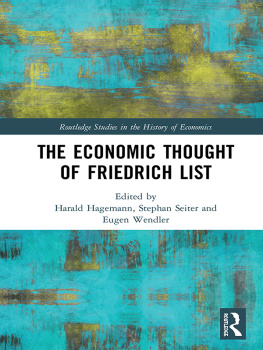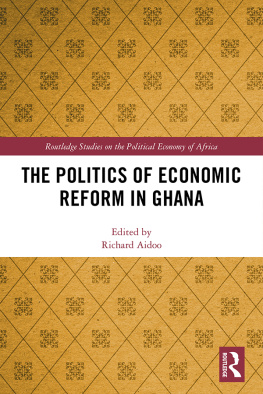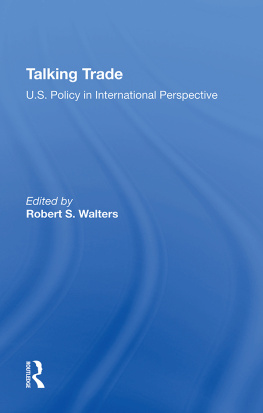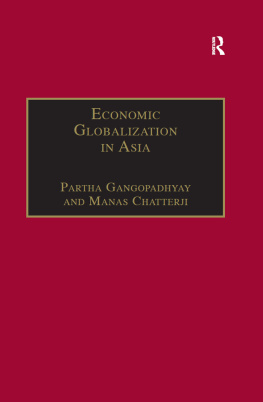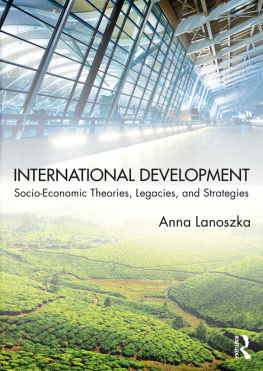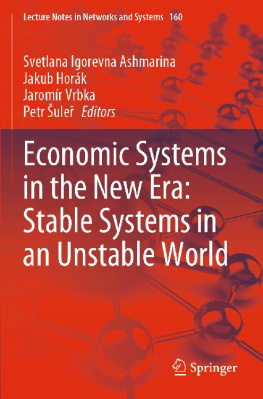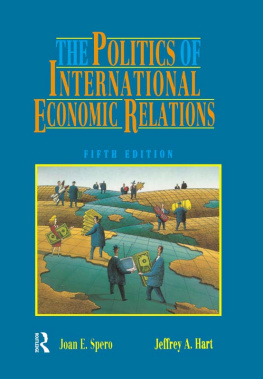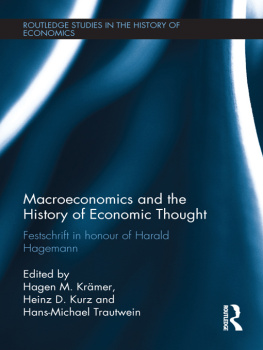The Economic Thought of Friedrich List
As the world grapples with increased globalization and technological change, Friedrich Lists work appears more relevant than ever before. His theory of productive powers and his argument for protecting infant industries give us a valuable way of looking at innovation systems, winners and losers in international trade, and the current shift towards economic and political nationalism.
Comprising fifteen specially commissioned chapters from a range of international scholars, this book explores many aspects of Lists economic thought, including industrial development, political economy, the economics of education, infrastructure and catching-up processes in Asian economies.
This volume will be illuminating reading for advanced students and researchers in the history of economic thought, economic history, economic policy and international trade.
Harald Hagemann is Professor Emeritus of Economic Theory at the University of Hohenheim, Germany.
Stephan Seiter is Professor of Economics and Quantitative Methods at Reutlingen University, Germany.
Eugen Wendler has retired from his role as Professor of International Marketing, Consumer Behaviour and Communication at Reutlingen University, Germany.
Routledge Studies in the History of Economics
208 Otto Neurath and the History of Economics
Michael Turk
209 A Brief Prehistory of the Theory of the Firm
Paul Walker
210 Unproductive Labour in Political Economy
The History of an Idea
Cosimo Perrotta
211 The History of Money and Monetary Arrangements
Insights from the Baltic and North Seas Region
Thomas Marmefelt
212 Business Cycles and Economic Crises
A Bibliometric and Economic History
Niels Geiger and Vadim Kufenko
213 A Contemporary Historiography of Economics
Edited by Till Dppe and Roy E. Weintraub
214 Money, Finance and Crises in Economic History
The Long-Term Impact of Economic Ideas
Edited by Annalisa Rosselli, Eleonora Sanfilippo and Nerio Naldi
215 Macroeconomic Theory and the Eurozone Crisis
Edited by Alain Alcouffe, Maurice Basl and Monika Poettinger
216 The Economic Thought of Friedrich List
Edited by Harald Hagemann, Stephan Seiter and Eugen Wendler
For more information about this series, please visit www.routledge.com/series/SE0341
First published 2019
by Routledge
2 Park Square, Milton Park, Abingdon, Oxon OX14 4RN
and by Routledge
52 Vanderbilt Avenue, New York, NY 10017
Routledge is an imprint of the Taylor & Francis Group, an informa business
2019 selection and editorial matter, Harald Hagemann, Stephan Seiter and Eugen Wendler; individual chapters, the contributors.
The right of Harald Hagemann, Stephan Seiter and Eugen Wendler to be identified as the authors of the editorial material, and of the authors for their individual chapters, has been asserted in accordance with sections 77 and 78 of the Copyright, Designs and Patents Act 1988.
All rights reserved. No part of this book may be reprinted or reproduced or utilised in any form or by any electronic, mechanical, or other means, now known or hereafter invented, including photocopying and recording, or in any information storage or retrieval system, without permission in writing from the publishers.
Trademark notice: Product or corporate names may be trademarks or registered trademarks, and are used only for identification and explanation without intent to infringe.
British Library Cataloguing-in-Publication Data
A catalogue record for this book is available from the British Library
Library of Congress Cataloging-in-Publication Data
A catalog record has been requested for this book
ISBN: 978-0-815-37245-5 (hbk)
ISBN: 978-1-351-24519-7 (ebk)
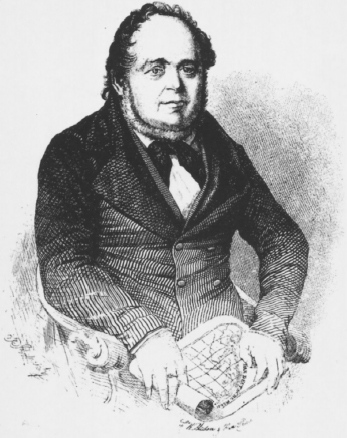
Vladimir Avtonomov is Academic Supervisor at the Faculty of Economic Sciences at the National Research University, Russia.
Elizaveta Burina is based at the National Research University Higher School of Economics, Russia.
Jos Lus Cardoso is Research Professor at the Institute of Social Sciences, University of Lisbon, Portugal.
Mechthild Coustillac is based at the Universit de Toulouse-Jean Jaurs, France.
Alexander Gerybadze is based at the Center for International Management and Innovation at the University of Hohenheim, Stuttgart, Germany.
Harald Hagemann is Professor Emeritus of Economic Theory at the University of Hohenheim, Stuttgart, Germany.
Tetsushi Harada is Professor of Political Economy of Cultures and Societies at the School of Economics, Kwansei Gakuin University, Japan.
Mei Junjie is Research Professor at the Shanghai Academy of Social Sciences, PR China.
Rainer Kattel is Professor and Deputy Director at the Institute for Innovation and Public Purpose, University College London, United Kingdom.
Mark Knell is Research Professor at the Nordic Institute for Studies in Innovation, Research and Education (NIFU), Norway.
Erik S. Reinert is a Norwegian economist, specializing in development economics and economic history.
Philipp Robinson Rssner is Senior Lecturer in Early Modern History at the School of Arts, Languages and Cultures, University of Manchester, United Kingdom.
Stephan Seiter is Professor of Economics and Quantitative Methods at Reutlingen University, Germany.
Dieter Senghaas is Professor Emeritus at the University of Bremen, Germany.
Stefano Spalletti is based at the University of Macerata, Italy.
Eugen Wendler has retired from his role as Professor of International Marketing, Consumer Behaviour and Communication at Reutlingen University, Germany.
Bernhard Wieland is Professor Emeritus of Transport Economics at the Institute of Transport and Economics, Technische Universitt Dresden, Germany.
Harald Hagemann, Stephan Seiter and Eugen Wendler
Friedrich List (born 1789 in Reutlingen, Germany, died 1846 in Kufstein, Austria) is, besides Karl Marx (18181883), one of the most important economists of the 19th century in Germany.
Born as the son of a white tanner Friedrich was supposed to follow his father. However, his parents realized very quickly that he should become an official. He was educated as a secretary and held the position of a Regierungsrat in the Ministry of Internal Affairs. In 1817 List proposed to the King of Wuerttemberg, Wilhelm I, that he found a faculty for state economy at the University of Tbingen. After gaining the approval of the king, List became a professor despite not having an academic background. About two years later, List had to resign after he wrote a critical petition favouring free trade and the integration of Germany for the Bundesversammlung in Frankfurt. In 1820 List was elected as member of the parliament of Wrttemberg. Here, he also challenged the public administration and thereby the king. He had to give up his seat in the parliament and was sentenced to ten months in prison. List left his home country to avoid the prison sentence. Nevertheless, after his return to Wrttemberg he was sent immediately to prison. After promising to emigrate to the USA, he was set free. In 1825 List and his family came to the United States, where List worked for the newspaper

